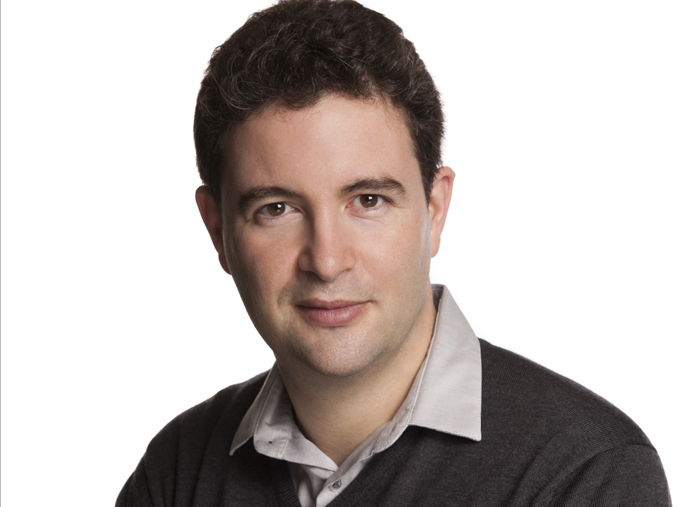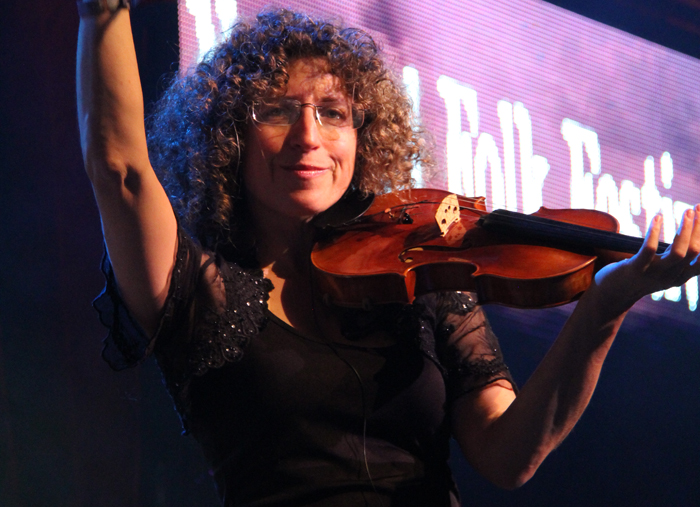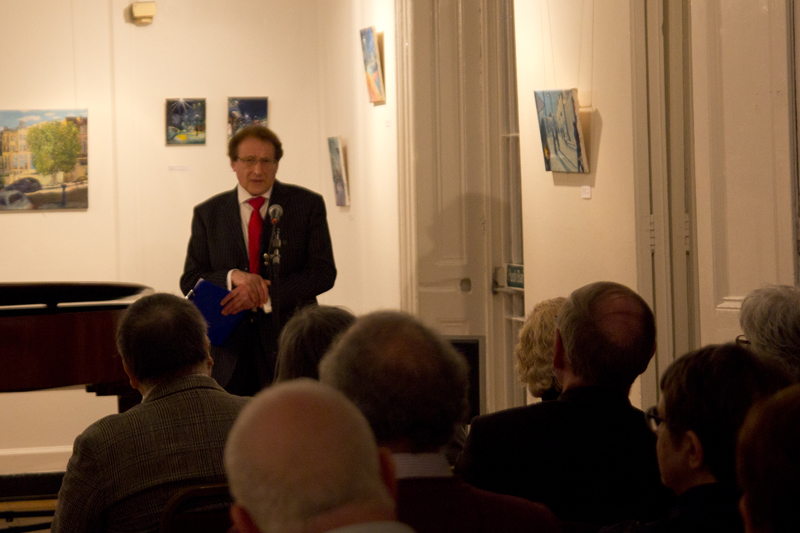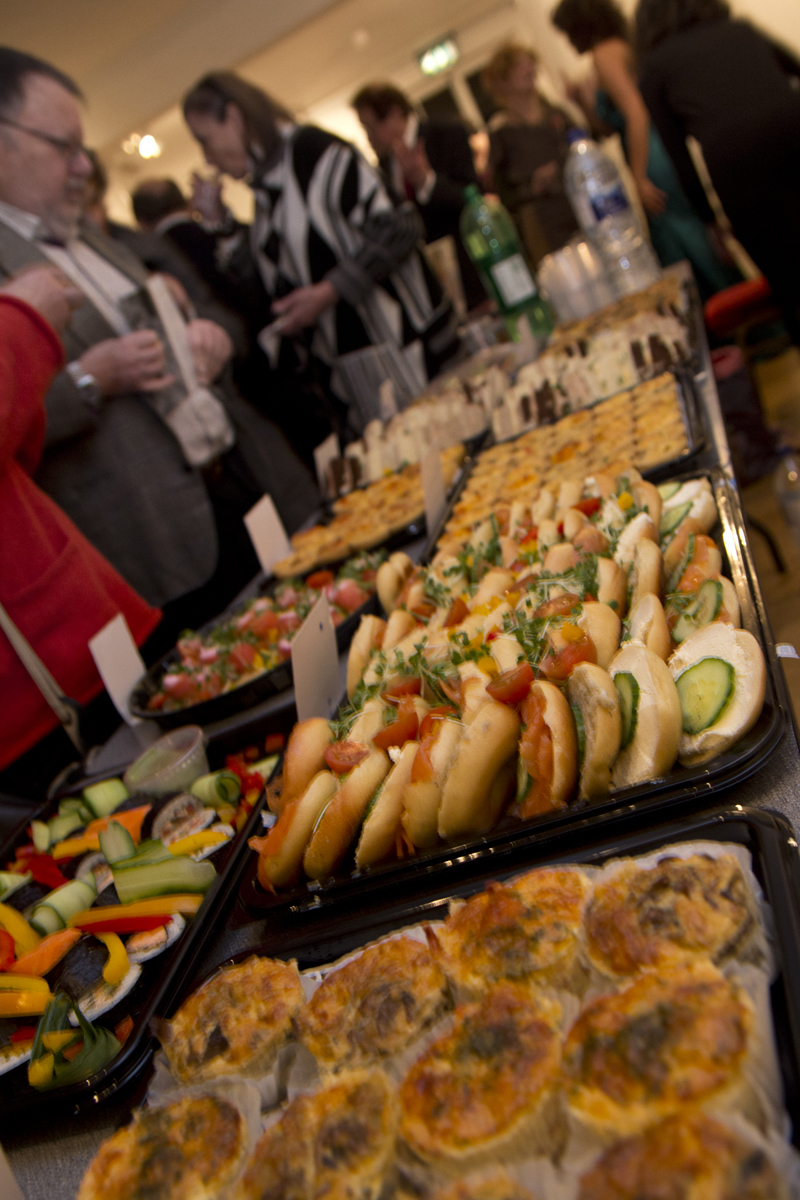For the first time in the history of Eurovision, the internationally adored song contest will be held in Tel Aviv. To celebrate the fact, and to encourage visitors to get out and explore the glorious city, Israel's Tourism Board has released an Insider’s Guide to Celebrating Eurovision…
The Blue Book ★★★★
Roots ★★★★
EFG London Jazz Festival 2018
Review: The Simon & Garfunkel Story ★★★★
Leonard Cohen: A personal response from JR's arts editor Judi Herman
 This is not where you will read erudite analysis or an account of a life, or even of the work. I am simply asking myself and others like me why we have been so profoundly affected by Leonard Cohen's words, music and life.
This is not where you will read erudite analysis or an account of a life, or even of the work. I am simply asking myself and others like me why we have been so profoundly affected by Leonard Cohen's words, music and life.
For a time now, aware that the man who told us all "I'm your man" was an octogenarian, I have been confiding that I hoped he would live to a great age because the world would be a poorer place without him. It was a better place with him in it. I think I feel this way because of the arc of his life, with its many pathways, both sacred and profane, as shared through his music, confided to me and so many others through his gorgeous, elegant poetry and lyrics.
The devout Jew engaged in an honest "I-Thou", one-to-one relationship with the God with whom he wrestles and may, like me, doubt, is also the apparently cheerful, though silent Buddhist. He was also the sublime lover, the dirty lover and the unfaithful lover; but a lover who was always as honest with his earthly lovers as with his God. I never met him but I'm convinced that he would have been the best of companions – despite the fug of tobacco smoke.
Returning to his Judaism, famously self-evident in Hallelujah and If It Be Thy Will, look closer and you will see how often he quotes not just from the scriptures (Old and New Testament) but also from prayers and writings central to the faith into which he was born. Who by Fire picks up powerfully, almost playfully – even blasphemously some might say – on “U-n’ tanneh tokef”, “Let us proclaim the holiness of this day”, an ancient liturgical poem describing the Day of Judgement, an important part of the High Holy Days Liturgy recited at Yom Kippur, the Day of Atonement, when God decides “who shall live and who shall die … who shall perish by water and who by fire…”.
And quoting the opening words of the Kaddish (prayer of mourning) in the title track of You Want it Darker, the album released shortly before his death, “Magnified, sanctified, be thy holy name”, is as much a part of his message that he is ready for imminent death as the words he repeats as a refrain, “Hineini, hineini I’m ready, my lord”. These words, which echo through the Torah from Genesis to Isaiah, are picked up by the cantor at his Montreal synagogue to end the song with a heart-stopping echo. How like Cohen not to go without leaving one last great legacy.
I hope to go into this in more detail in the next issue of Jewish Renaissance, comparing Cohen's lyrics with Nobel Laureate Dylan. But for now, rest in peace Leonard Cohen; z”l (zichrono livrakha – may his memory be a blessing)". You may have reached the age of 82, but for me, as for so many more, your death was untimely, though I'm sure you met it with your usual great grace, ready for this last new experience that you have written about with such beauty.
The Millenium Awards 15 years on – Geraldine Auerbach traces four of the lives it changed
 The millennium was a time of fireworks and celebrations, but it also marked a moment for Jewish music to benefit enormously. The Jewish Music Institute (JMI), in partnership with the music department at SOAS, was fortunate to win £240k from the Millennium Commission to give away in grants to enable individuals to achieve their dream projects in Jewish music. Fifteen years on, we can see how significantly awareness of Jewish music – and lives – were changed.
The millennium was a time of fireworks and celebrations, but it also marked a moment for Jewish music to benefit enormously. The Jewish Music Institute (JMI), in partnership with the music department at SOAS, was fortunate to win £240k from the Millennium Commission to give away in grants to enable individuals to achieve their dream projects in Jewish music. Fifteen years on, we can see how significantly awareness of Jewish music – and lives – were changed.
Exciting proposals flew in from across the country. The 63 successful candidates were paired with mentors and monitors to ensure fruitful outcomes. Each project needed an end product that would benefit a community. The money could be spent on travel, training, equipment, performances and publications to help attain their aims.
Awardees arranged choral festivals and conferences, produced CDs, wrote musicals, oratorios and even a novel. Concerts, cabarets and dance workshops were held in schools, concert halls and hospitals around the country and even in prisons. Subjects included Jewish jazz, medieval poetry, Torah chanting, Argentinean tango, Israeli piano music and even music originally suppressed by the Nazis.
Because of the experience, award winners went on to great success. Such as Meg Hamilton, a classically trained violinist who has become a key player in both Jewish classical and folk music; Michael Etherton now directs several Jewish Choirs; and Vivi Lachs went on to complete a PhD in London Yiddish songs and recently announced she is starting the London Yiddish Parade, which includes a marching band and Yiddish chorus.
Looking back over the many exciting programmes during my 28 years at the helm of JMI, I believe that this one has had the greatest impact. Not only did it introduce a wide range of Jewish music and culture to hundreds of people of all ages around the UK, but it allowed artists to flourish. Best of all it equipped and encouraged highly talented young men and women to take up a career in Jewish music, many of who are household names today as teachers and performers, holding prestigious positions in our institutions.
Benjamin Wolf
Conductor, pianist, singer and composer Benjamin Wolf acknowledges that it was the Millennium Award that steered him towards a career, not in the city or law, but in Jewish music. “The award to complete my piano concerto L’Chaim was a turning point for me”, he elaborates. “It was soon after I graduated from Oxford and without it I probably wouldn’t have pursued my interests in traditional Jewish melodies so thoroughly. There is no doubt that it helped me to obtain early jobs in Jewish music, and because of these, my interest in and knowledge of the subject has continued to develop.” Today Ben is the music director of London’s prestigious Zemel Choir and of Belsize Square Synagogue where he arranges music and connects for both the professional and community choirs. Ben has gone on to compose a cello concerto on Jewish themes and has orchestrated several pieces by Jewish composers. His orchestra, the Wallace Ensemble regularly performs concerts of Jewish music. He regularly runs Jewish choral workshops in London and arranges international choral festivals that bring together Jewish choirs from Berlin, Paris, Prague, Rome and Israel, amongst other places, to perform and work with his choirs in London. He has also set up his own Jewish a cappella quartet, bOYbershop.
Ilana Cravitz
Ilana Cravitz, like Ben Wolf, says the Millennium Award came at a very important stage in her musical journey. “It enabled me to study in America with some of the most prominent figures in the klezmer world, supported me in developing my research, teaching and networking skills, and provided a basis for me to implement ideas with willing participants.” Ilana, who set up and leads the outstanding London Klezmer Quartet, which has made several CDs and toured the UK, Europe and Australia, also runs Hopkeles (Yiddish dance parties) for organisations or individuals and arranges regular monthly klezmer workshops at a London pub. She adds: “Without the help of the award, I doubt that I would have been invited to write Klezmer Fiddle – A How-To Guide for Oxford University Press or become the professional klezmer performer and teacher that I am today.”
Louise Taylor
Louise Taylor hand-picked eight players to train weekly at JMI with legendary klezmer clarinettist Merlin Shepherd and the result was She'Koyokh. The klezmer ensemble are now one of Europe’s leading klezmer bands, playing concerts, festivals and Jewish ceremonies all over the world, and of course they have a special place to come back to and perform at JMI’s Klezmer in the Park every summer. The group’s clarinettist, Susi Evans (pictured), explains how fundamental the award was to her career: “At the time I was a student at the Royal Academy of Music training for a future in classical music, so my teachers were not at all keen. I’m sure I was the first student in the Academy’s history to perform with an eight-piece klezmer band in my final recital. Happily, the examiners loved it. I learned how to play by ear and improvise and have gone on to study other Eastern European styles, leading to theatre work, session work and performing with the Jocelyn Pook Ensemble and the London Klezmer Quartet. I’ve run klezmer workshops as far afield as Australia and taught on the faculty at JMI Klezfest 2015. Studying klezmer with the award has empowered me greatly as a musician.”
Sophie Solomon (pictured above)
Sophie Solomon, who co-founded fusion group Oi-Va-Voi while studying at Oxford, won funding to make The HipHopKhasene – a CD of music that reimagines a Yiddish wedding in a hip-hop style, including Yiddish freestyle rapping. She told us that the Millennium Award was a "pivotal moment" in her career. "It enabled me to develop as an artist and a producer and to work with the some of the most celebrated names in the Yiddish music revival. It funded this hip-hop album, which afterwards won an award, and also sparked off a real-life hip-hop Jewish wedding where we all performed in a whisky distillery in Toronto complete with rapping Badkhn (comedian).” Sophie subsequently formed a solo band, which recorded for Decca Records, and she has composed music for the National Theatre. Sophie is now the esteemed artistic director of JMI where she is taking the organisation to exciting new heights. She has commissioned new works and initiated stimulating Jewish music education programmes in schools. She continues to expand the annual JMI Klezmer in the Park festival each September in Regent's Park and, while preserving and enhancing JMI’s summer schools in Yiddish language and song, she has revived the JMI KlezFest training programme in London. Both Sophie and Jennifer Jankel, the current JMI chairman, hope that the Jewish Music Institute’s current creative programming will continue to inspire future careers in Jewish music.
By Geraldine Auerbach
Geraldine Auerbach reports on the tragic death of two giant figures in Britain's Jewish music scene
 © Complete Music and the Brickman family via Times Union
© Complete Music and the Brickman family via Times Union
Composer Ronald Senator and his wife, pianist Miriam Brickman, tragically died in a fire in their home in Yonkers, New York on Thursday 30 April. Geraldine Auerbach, the founder of the Jewish Music Institute in London, explains how important they were in the world of Jewish music in Britain.
I am not sure how I first met Miriam and Ronnie Senator – but they were pivotal to the first Bnai Brith Jewish Music Festivals. Miriam was a real catalyst, putting (or pulling) ideas, people and programmes together in most creative ways that always led to something special and to lasting and developing relationships. She would always come up with something innovative and spectacular.
To the very first festival on 24 June 1984 she brought a super chamber concert in the Purcell Room with herself on piano and Stanley and Naomi Drucker, clarinettists from the New York Philharmonic, and her friends Sybil Michelow and Malcolm Williamson who had formed a piano and voice duo. For the second festival in 1986 she brought another chamber concert, which included bassoon and viola players from the Nash Ensemble. The programmes were always exciting, introducing new works of Jewish interest by new composers and as always, there were pieces by Ronnie Senator in the concert.
Miriam also brought me something much more remarkable. It was Ronnie Senators' 'Kaddish for Terezin’, a huge oratorio he had written in memory of his first wife who had been incarcerated in Auschwitz. It involved an orchestra, choir and children’s choir, a cantor and a narrator. Something much bigger than I had ever contemplated. But I thought it was important – and, impressed by her enthusiasm, I was inspired to make it happen – in a special setting. The Director of CCJ, the wonderful Rev Marcus Braybrooke suggested it could be ideal for Canterbury Cathedral – and that he would broach the subject with the Dean, with whom he was having lunch next day. It transpired that the Deanery in Canterbury had housed Jewish refugees and that he had wanted a Holocaust memorial (but not a statue) so this fitted the bill.
That set the most amazing activities in motion. Malcolm Singer stepped up to the podium to provide and conduct the orchestra and choirs and had a friend with a superb children’s choir. I felt Rabbi Hugo Gryn, who himself had been in Terezin, should be the narrator. Louis Berkman cantor of Belsize Square – the synagogue created by Holocaust survivors or escapees – should be the soloist. This amazing premiere was broadcast live on BBC Radio London with interviews with Hugo and other survivors during the interval.
But that wasn't all. When Dr David Bloch, of Tel Aviv University, who was presenting a concert of Israeli contemporary music at the festival, heard about the Terezin Project and suggested we invite two musicians – pianist Edith Kraus from Israel and bassist Karel Berman from the Prague National Opera – who had last performed together in Terezin. He suggested an amazing film of music in Terezín for us to show and also suggested we invite Josa Karas who had just published a book about it. All of which we did.
And so it was that all day while Jewish choirs and a cantor and Rabbi rehearsed in Hebrew and blew a shofar in the Cathedral, the film was showing over and over in the school hall – and recitals (two of them) took place in the recital hall – which just happened to be the old Synagogue in Canterbury. Then after a reception in the Chapter House with the Archbishop of Canterbury the cathedral was filled with Jews and Christians listening to Ronald Senator’s Holocaust Oratorio. A film was made of the day focusing on Edith and Karel and shown on national television on Remembrance Sunday in November 1986, which also happened to be the commemoration of Kristallnacht.
With this auspicious beginning, Miriam went on to have performances of Ronnie’s Kaddish for Terezin mounted in other special places such as St John the Devine in New York, the Vatican in Rome and in Terezin itself.
It was not only the heavy stuff. For the next Festival in 1988 Miriam brought Klezmer to the UK. She introduced me to Giora Feidman the astonishing clarinettist who wowed London at the Logan Hall then and again in 1990, as well as in later festivals. In the ’88 festival Miriam also put together another innovative chamber concert, this time called Echoes of Jewish Poland at St John's, Smith Square with Sybil singing as well as Simon Fisher on Violin, Antonio Lysy on cello and Rivka Golani on viola, who premiered Ronald Senator’s Dance Suite for viola solo.
It was also in 1988 that Miriam introduced me to Isabelle Ganz who delighted everyone with her group Alhambra in a concert of Sephardi Life Cycle songs at the Almeida Theatre and presented the delightful Sacred and Secular music of the Sephardi Jews at the Purcell Room, Supported by Nitza and Robin Spiro.
It was always exciting to be in the presence of Miriam and Ronnie. Especially Miriam, who was so enthusiastic and brimming over with ideas and suggestions that were helpful to all.
Miriam Brickman and Ronnie Senator brought true riches in Jewish music and musicians to greatly enhance the Bnai Brith Jewish Music Festivals and thus Jewish music in the UK. The last time that Miriam and Ronnie were with us I think was at the Bloch Conference in Cambridge in 2007 where she performed in the concert.
They were always together – flitting between homes in London and New York – often catching a lift on the QE2 where Miriam would entertain on the piano and Ronnie would give lectures that enthralled the passengers. He was 89 and Miriam 81. Their health was failing. Despite this shocking news of the fire at their home, there may be something comforting or poignant that in their last moments they were also as one, and like Elijah were taken together up to heaven in a fiery embrace. Always innovative and spectacular.
Violinist Irmina Trynkos dazzles at the second JR salon
A packed crowd of around 60 people attended the second JR salon event this week at Lauderdale House in Highgate. They were there to hear the virtuoso talents of violinist Irmina Trynkos, as well as the sparkling sounds of pianist Marco Fatichenti. And they weren’t disappointed.
Dressed in a jewelled, emerald green evening gown, Irmina treated the audience to a programme full of energy and passion. Irmina opened proceedings with the sweeping Sonata for Violin and Piano in D Minor No.3 Op.108, by Johannes Brahms, followed by a piece by the relatively unknown Polish-German Jewish composer Ignatz Waghalter – his Sonata for Violin and Piano in F Minor Op.5.
Ernest Bloch’s Baal Shem Nigun and George Gershwin’s sprightly Prelude No.1 followed, as well as the theme by John Williams from Shindler’s List, which Irmina played in melancholy and moving style. The concert ended with the quirky gypsy sounds of Maurice Ravel’s Tzigane, played with terrific speed and verve by both violinist and pianist.
The music was interspersed with some background to the composers provided by the warm and engaging broadcaster Rodney Greenberg, who was the presenter for the evening. He and Irmina took time to discuss Waghalter's farewell – and return – to Germany, his fall from the public consciousness and how he made the wrong move of staying in New York rather than LA, as he might have better developed his career in Hollywood. She has taken on the task of reviving his little known works, along with other ‘forgotten’ composers.
The music was followed by drinks and canapés. The elegant, yet intimate, surrounds of Lauderdale House provided the perfect backdrop for the event and we hope to continue our salon series soon.
To find out more about Irmina Trynkos, read our article about her.
By Rebecca Taylor
Photos © Charlotte Mayhew
Visit facebook.com/JewishRenaissance for more photos.




















